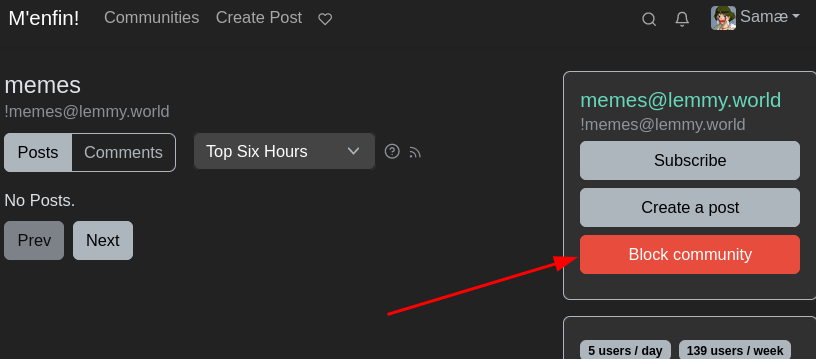

You’re assuming it is useful enough to find the person, and not just A person.


You’re assuming it is useful enough to find the person, and not just A person.


What’s scary here is the lack of training/understanding on the investigation side… This is just ignorance.
the family deserves to know that we tried everything
Like, have you tried praying? We don’t have any data, so it may be effective.


Keep instance small, with all users in the same timezone. Use NixOS, let it update everynight automatically and safely. It’s good enough for a small service, downtime is mostly when people are sleeping.
Try again elsewhere, you’ll eventually find the right place!


Assembling a second dynamics (analog compressor). First one took me over 8h of work.


I hope you understand how this is discouraging: at present, federation is anything but straightforward.
There’s also a question of perspective. If you approach federation with the mindset that it will be like the sort of SSO you get with using google products, microsoft ecosystem, or facebook to log in to many websites, then yes: it’s doesn’t look straightforward.
If you approach it with the perspective that the coupling between fediverse applications being more loosely coupled, and have the way email work in mind, then it is actually more natural. Each application can do their own thing, and provide all or partial compatibility with the fediverse. Think of a blog application, which rely on the fediverse only for the comment section of each blog posts, but also does other things specific to that application. Taking the example of email again, nobody thinks they should be able to log-in to microsoft outlook using their gmail account, or to gmail using their home-made account, in order to read and send emails.
There’s a narrative aspect to it too.


Wouldn’t that overload popular instances even more? Right now, popular instances only need to accommodate their users, but with a “fediverse-wide” auth, soon they’ll also have to serve content to people who followed that popular link to their content?


Is it so desirable to sent even more info, this time potentially non-public, if you decide to interact with the other instance?
This includes partial information about your online identity, namely identifying you uniquely. Not all instances should be considered trustworthy, so your log-in token may get re-used by a malicious instance to post things in your name here and there. Kind of a silly situation, favorable to spammers for example.


Have you tried the archive link? There’s no need to sign in with it


Users can already do so, what would instance-level block bring?



I had “weathering steel” in mind, butt you’re right, even in this case, rust still eats at it, just slower.


Is it now? Github says it’s Rust at 80%. And a layer of rust is a good protection again further rust 😃


not enough nodes were there
And a bit later he mentions “Not just all account servers; different kinds of services”. I have a feeling this has been overlooked in the recent discussions about Threads. The fediverse is an excellent base to launch a myriad of varied kinds of services, not all of them “account servers” like lemmy, mastodon, pixelfed, etc. Let’s also build more bots and automated services too :3 It could be games played through fedi, it could be statistics, admin tools, and whatever comes to mind.
This is the kind of thing that would be added value even for huge account nodes, and would probably act as a deterrent to want to change the rules of the game (making changes to ActivityPub). If you change the proto, your users would lose access to all the nice things that exist outside of the instance, quite the backlash, like what happened with reddit.
What do you all think?


Good reminder that: small instances = small impact. Both true for the positive and the negative.


Speaking of sucking… Medium is on the blacklist.
Osmand?